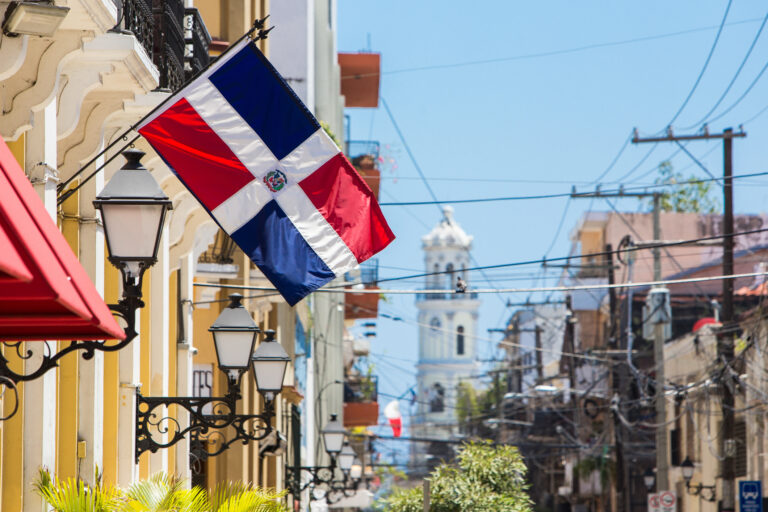In the summer of 1999, a PRI representative visited the headquarters of the United Nations Population Fund (UNFPA) in Vietnam. The verbal exchange was guarded, but PRI obtained a series of publications from the Hanoi office.
UNFPA in Seven Countries
According to these publications, UNFPA operates seven Vietnamese county programs, including programs in Thai Bin and Quang Nam counties.1 UNFPA efforts in Vietnam “are designed to mobilize the resources and political will required to accomplish stabilization and population growth through a broad range of population and sustainable development initiatives.”2
How does the “political will” of Vietnam’s communist regime — through its National Committee on Population and Family Planning (NCPFP) and the UNFPA — accomplish population “stabilization” in these counties?
Accomplishing Population “Stabilization”
In Thai Bin county, women testify that they long to have more than two children. but cannot because of this county’s unbending family planning law.3 Women are forced to use IUDs; punishment for non-compliance includes fines and forced abortion.4
In Quang Nam county, another UNFPA county program, entire villages in remote mountain areas inhabited by minorities have been forcibly sterilized. Coercion among minorities in this and other areas is well known. Despite government claims that women of the Montagnard tribe are only subject to fines and incentives, other reports suggest otherwise.5
A Coercive Policy
Vietnam’s family planning policy is universally coercive, and includes a two-child limit for cadres, manual workers, civil servants, soldiers, families living in a municipality or in the Red River or Mekong Deltas; and birth limitations for ethnic families in northern mountain provinces, Central Highlands and Northwest. Families that have more than the stipulated number of children must contribute “social support funds,” or face punishments stipulated by law by management agencies.6
Mandatory Birth Control Policies
Mandatory birth control policies are enforced nationally. Village leaders who successfully implement the national policy are most likely to be promoted to leadership positions in larger administrative units.7
Vietnam’s family planning policy is coercive. It involves forced abortion and forced sterilization. Abuses against women exist throughout the length and breadth of the country, including those counties where UNFPA operates.
Unlike its China operations-which UNFPA claims are purely voluntary (a claim which is patently false) — UNFPA has made no claim that coercion has been lifted from its county programs in Vietnam. Yet over the decades, UNFPA has spent tens of millions of dollars in Vietnam to strengthen the political will of Vietnam’s coercive family planning machine.
UNFPA Reaction
Has UNFPA ever condemned Vietnam for coercion? No. Rather UNFPA heaps on praise: “They have been very successful,” Omar Ertur, the UN Population Fund’s Representative in Hanoi,” was quoted as saying. “They have achieved a tremendous reduction in a very short period of time.”8 Not a word about how this reduction was achieved.
Has UNFPA ever sought to distance itself from coercive family planning in Vietnam? Again the answer is no. Instead, the UNFPA has wholeheartedly embraced the program, singling it out for special honors. The UNFPA presented its “United Nations Population Award” to Vietnam’s National Committee for Population and Family Planning in 1999.9
American Tax Support
Most Americans would be appalled to discover that they have been supporting, with their tax dollars, an organization involved in coercive population control programs, The Kemp-Kasten Amendment, which forbids U.S. funds from going to countries or organizations which participate in the management or support of a program of forced abortion or forced sterilization, was passed by Congress precisely to prevent this kind of misuse of taxpayer dollars. It should be invoked by President Bush. Zero for the UNFPA.
Endnotes
1 UNFPA pamphlet, “United Nations System, Vietnam,” Hanoi.
2 Ibid.
3 Daniel Goodkind, “Vietnam’s One-or-Two Child Policy in Action,” Population and Development Review 21(1):85–111 (March) 1995, p. 98–99.
4 Ibid., p. 102.
5 The Montagnard Foundation, “Vietnam Ambassador Admits Sterilizations of Montagnard Hill Tribes: Crime of Genocide: imposing measures to prevent births,” Press release. August 2001.
6 “Council of Ministers Decision 162 Concerning a Number of Population and Family Planning Policies,” published in Teachers of the People, 5 December 1988; cf. Daniel M. Goodkind, “Vietnam’s New Fertility Policy.” Population and Development Review 15(1):169–172 (March) 1989, p. 169–172.
7 Goodkind, p. 103.
8 BBC, Owen-Bennett Jones in Hanoi, 8 November 2000, http://news.bbc.co.uk/hi/english/world/asia-pacific/newsid_1011000/1011799.stm
9 UNFPA pamphlet, “Vietnam: Key Issues in Population and Development,” Hanoi, 1999.






